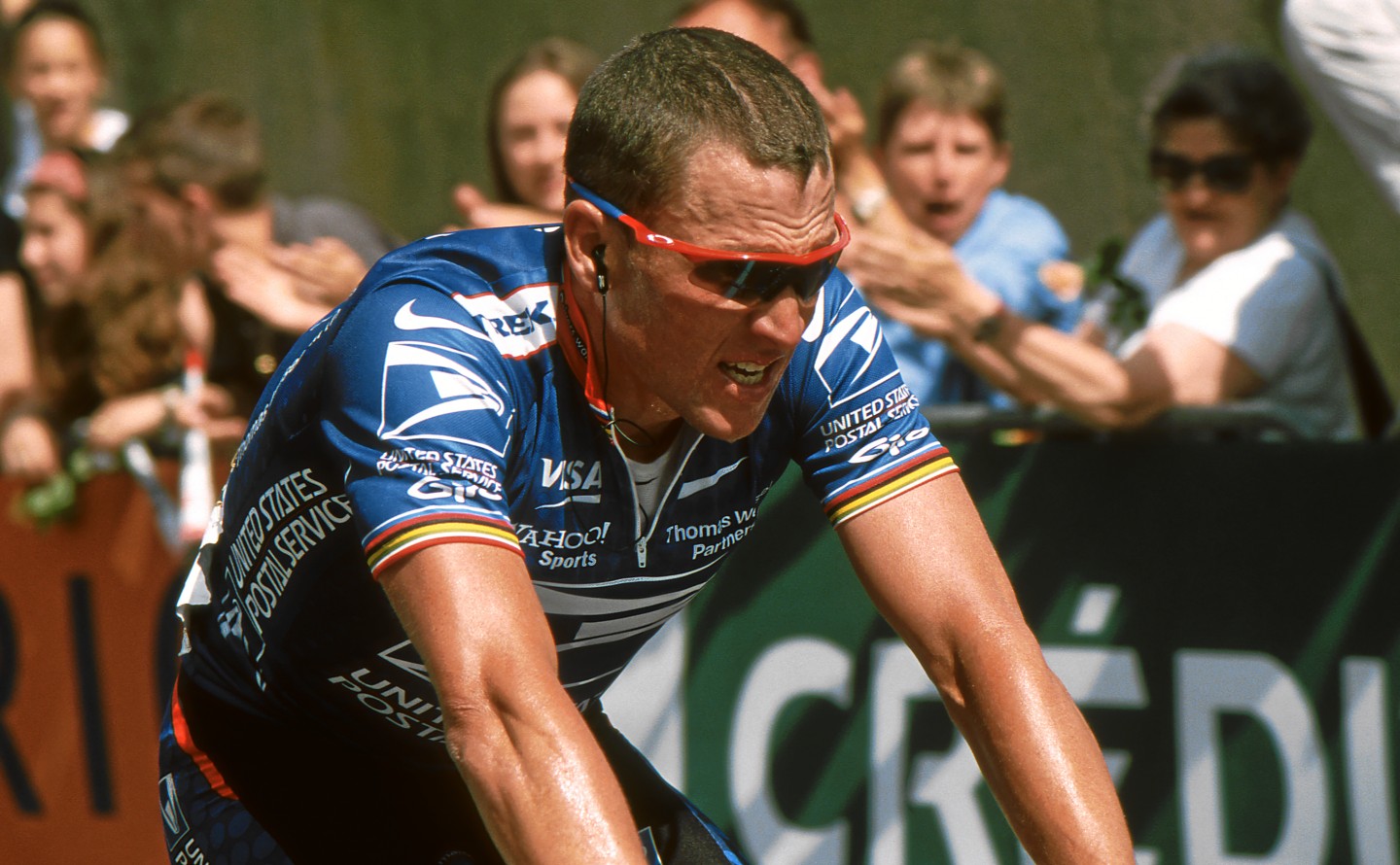How Did Lance Armstrong Get Busted?

Get the world’s most fascinating discoveries delivered straight to your inbox.
You are now subscribed
Your newsletter sign-up was successful
Want to add more newsletters?

Delivered Daily
Daily Newsletter
Sign up for the latest discoveries, groundbreaking research and fascinating breakthroughs that impact you and the wider world direct to your inbox.

Once a week
Life's Little Mysteries
Feed your curiosity with an exclusive mystery every week, solved with science and delivered direct to your inbox before it's seen anywhere else.

Once a week
How It Works
Sign up to our free science & technology newsletter for your weekly fix of fascinating articles, quick quizzes, amazing images, and more

Delivered daily
Space.com Newsletter
Breaking space news, the latest updates on rocket launches, skywatching events and more!

Once a month
Watch This Space
Sign up to our monthly entertainment newsletter to keep up with all our coverage of the latest sci-fi and space movies, tv shows, games and books.

Once a week
Night Sky This Week
Discover this week's must-see night sky events, moon phases, and stunning astrophotos. Sign up for our skywatching newsletter and explore the universe with us!
Join the club
Get full access to premium articles, exclusive features and a growing list of member rewards.
Lance Armstrong has announced that he will no longer fight accusations from the United States Anti-Doping Agency (USADA) that he used performance-enhancing drugs during his historic cycling career. Though the seven-time Tour de France winner still asserts his innocence, he now faces the loss of all the titles and associated prize money he has won since 1998. But what set Armstrong's epic fall from grace in motion and why is it culminating now? Life's Little Mysteries explains.
Why did authorities suspect Armstrong of doping in the first place?
Anyone who emerges from a bout with cancer to make a record-obliterating run on one of the world's premier sporting events is sure to draw skepticism, so it's not surprising that Armstrong has contended with allegations of doping for more than a decade. But his unprecedented domination was not the only source of suspicion. Even in 1999, the year of his first Tour de France win, there were already objective suggestions that Armstrong's success may not have been entirely on the up and up. That year, his urine sample showed a small trace of a banned steroid used to assist muscle recovery, but he was cleared when his team produced a medical certificate showing that the chemical was present in a cream Armstrong used for "saddle sores."
In 2005, a French newspaper reported that Armstrong's 1999 urine samples had retroactively tested positive for the "blood booster" Erythropoietin (EPO), a banned substance that couldn't yet be detected in urine tests in 1999. But because the 2005 urine tests were not conducted according to official standards, the results had no effect on Armstrong's standing.
Most damaging to Armstrong's claims to innocence has been mounting testimony from former teammates and associates who say they have witnessed or shared in Armstrong's alleged doping practices. Indeed, the USADA case that caused Armstrong to back down from arbitration rests in large part on a group of 10 former teammates who the agency says will testify to having firsthand knowledge of Armstrong's doping.
What types of drugs did Armstrong allegedly use?
The USADA accuses Armstrong of using EPO, human growth hormone, testosterone, anti-inflammatory steroids and various masking agents used to cover up his other alleged abuses. The agency claims to have physical evidence for Armstrong's supposed "blood doping," a practice designed to boost an athlete's red blood cell count that can either involve blood transfusions or the use of synthetic EPO.
Get the world’s most fascinating discoveries delivered straight to your inbox.
What is EPO and what do blood transfusions have to do with athletic success?
EPO is a naturally occurring hormone in humans that regulates the production of red blood cells and — because red blood cells carry oxygen throughout the body — determines a person's oxygen-carrying capacity. A surge of red blood cells will temporarily supercharge an athlete's ability to deliver oxygen to muscles and thereby improve his or her endurance.
Without using synthetic EPO, cheating athletes can increase their red blood cells by temporarily extracting a unit of blood a few weeks before an event, waiting for their body to naturally recoup the missing red blood cells and then transfusing the backup unit into their bloodstream when they want a boost. [How Do Athletes Get 'In the Zone' of Peak Performance?]
The USADA has accused Armstrong of using both methods of blood doping. Their claim is based on blood tests from 2009 and 2010 that they say are "fully consistent" with blood doping.
If the USADA has blood tests showing that Armstrong practiced blood doping in 2009 and 2010, does he have any grounds to continue to deny their allegations?
Because synthetic EPO is nearly identical to the hormone that naturally occurs in athletes' urine, it is notoriously hard to test for. A testing method capable of distinguishing synthetic EPO was not developed until 2000, and since then, athletes have successfully argued that it has yielded false positives.
There is still no sure test to detect a blood transfusion consisting of an athlete's own blood, and in suspected cases of non-synthetic blood doping, determinations of guilt are based on observed overabundances in red blood cells. Judgments like these can easily be called into question by athletes and sometimes explained by natural variations in red blood cell production.
It is not clear whether the USADA's claim of having tests "fully consistent" with blood doping rests on a positive test for synthetic EPO or on observations of anomalous red blood cell levels. The wording of their claim, that they have data "fully consistent with blood manipulation including EPO use and/or blood transfusions," suggests a degree of uncertainty about what conclusions can be drawn from the tests.
Is it a sure thing that Armstrong will be stripped of all of his titles and prize money now that he's stopped fighting the USADA's charges?
The International Cycling Union (UCI), the world governing body for sports cycling, disputed the USADA's authority to arbitrate the doping case, so it is still theoretically possible that the cycling union will appeal the USADA's ruling.
The UCI says it will withhold comment on Armstrong's USADA-mandated suspension until the agency has submitted a "reasoned decision" to the body, as they are obligated to do by the World Anti-Doping Code. In turn, the International Olympic Committee said that it will await decisions from the USADA and UCI before deciding whether to revoke Armstrong's bronze medal from the 2000 Sydney Olympics. But USADA chief executive Travis Tygart has said that the cycling union is "bound to recognize our decision and impose it."
Follow Life's Little Mysteries on Twitter @llmysteries. We're also on Facebook & Google+.
 Live Science Plus
Live Science Plus










